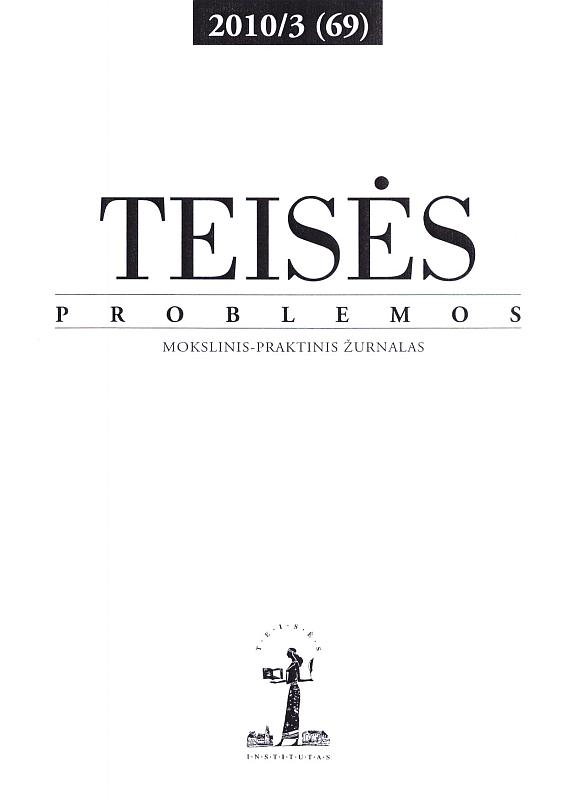Diskriminacijos draudimo principas pagal Europos Sąjungos teisę žmogaus teisių apsaugos požiūriu
The Principle of the Prohibition of Discrimination under EU Law from the Perspective of Human Rights Protection
Author(s): Vygantė MilašiūtėSubject(s): Law, Constitution, Jurisprudence, Human Rights and Humanitarian Law, EU-Legislation
Published by: Lietuvos teisės institutas
Summary/Abstract: The article examines the principle of the prohibition of discrimination under EU law from the perspective of human rights protection. The field of research is limited to those forms of the principle under EU law which have as their goal the protection of human rights. Due to links between EU law and the ECHR, the latter is used in the human rights assessment of the former. Furthermore, academic literature which highlights the advantages and the shortcomings of the prohibition of discrimination contained in the ECHR is taken into account. Research relies on the analysis of relevant legal acts and case law as well as of academic literature on these sources of law. Analysis of both EU law and the ECHR sources indicates that the Court of Justice of the EU and the ECtHR aim at harmonious co-existence of their interpretations of the principle of the prohibition of discrimination. Gradually the difference between the case law of the two courts diminishes except where those differences are caused by the very nature of EU law and the ECHR.Both EU law and the ECHR have their strengths and weaknesses. The strength of the prohibition of discrimination under the ECHR, especially taken together with its additional Protocol No. 12, is in its wide scope. The ECtHR is able to grant the protection against discrimination where the Court of Justice of the EU cannot do so because of formal obstacles or the content of EU law. In particular, the ECtHR enjoys the monopoly of giving authentic dynamic interpretation of the ECHR provisions. The strength of EU law is in its detailed nature and the practice of taking into account the case law of the Court of Justice of the EU when adopting EU law acts. Notably, EU law contains a modern definition of indirect discrimination, admits that comparison made to establish discrimination is not limited to an existing comparator but is possible even hypothetically, which enables the use of theoretical standards and alleviates the task of proving discrimination. EU law also contains specific provisions on the burden of proof in discrimination cases and acknowledges the use of statistical evidence to prove indirect discrimination. The main weakness of the principle of the prohibition of discrimination under EU law is its limited scope but the situation can change in the future if the practice of applying the EU Charter of Fundamental Rights at the Court of Justice of the EU, or the Court of Justice of the EU case law on the principle of the prohibition of discrimination as one of the general principles of EU law is further developed. The conclusion is that EU law provides for a rather advanced system for the protection against discrimination. However, in view of the fragmentary nature of EU law, in certain cases more efficient protection against discrimination can be guaranteed under the ECHR.
Journal: Teisės problemos
- Issue Year: 2010
- Issue No: 69 (3)
- Page Range: 95-140
- Page Count: 46
- Language: Lithuanian

